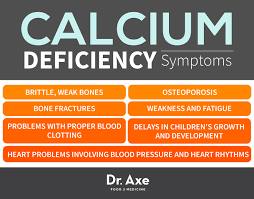Effects of dehydration in your pregnancy
Effects of dehydration in your pregnancy
Brought to U....http://successgain.us and http://successgain.info
My memories
Effects of dehydration in your pregnancy
Posted in 2015
Brought to U....http://successgain.us and http://successgain.info
My memories
Effects of dehydration in your pregnancy
Posted in 2015
Heat Regulation
Dehydration can lead to maternal overheating. Water aids in heat regulation for all individuals, but it becomes especially important during pregnancy. Overheating becomes easier during pregnancy because your body is not able to rid itself of heat as easily. In an effort to compensate for this, your body may sweat sooner and more, which means you're also losing extra water. If your temperature increases to 102 degrees or higher, your baby can experience overheating as well. If this happens in early pregnancy, it can lead to neural tube defects.
Low Amniotic Fluid
While there are a variety of potential causes for developing low amniotic fluid, maternal dehydration could be a possible culprit. Amniotic fluid serves as your baby's support system. It provides protection and cushioning to your unborn child and assists with the development of many of his systems. Low amniotic fluid in the early stages of pregnancy can lead to the development of birth defects or even miscarriage. In the later stages of pregnancy it can cause preterm birth, impaired growth of your baby or labor complications such as a required cesarean delivery or compression of the umbilical cord.
Other Risks
In addition to the possible maternal risks of fatigue, constipation and inadquate breast milk production, dehydration may lead to other health concerns for your baby. Water plays vital roles in removing waste and in liver and kidney functions for both you and your baby. Dehydration could lead to in adequate removal of waste substances from your baby's cells and place strain on his liver and kidneys. Dehydration in the third trimester can actually trigger uterine contractions and lead to preterm labor.
My advise
1... You and your unborn child may face may health problems as indicated in the picture
Dehydration can lead to maternal overheating. Water aids in heat regulation for all individuals, but it becomes especially important during pregnancy. Overheating becomes easier during pregnancy because your body is not able to rid itself of heat as easily. In an effort to compensate for this, your body may sweat sooner and more, which means you're also losing extra water. If your temperature increases to 102 degrees or higher, your baby can experience overheating as well. If this happens in early pregnancy, it can lead to neural tube defects.
Low Amniotic Fluid
While there are a variety of potential causes for developing low amniotic fluid, maternal dehydration could be a possible culprit. Amniotic fluid serves as your baby's support system. It provides protection and cushioning to your unborn child and assists with the development of many of his systems. Low amniotic fluid in the early stages of pregnancy can lead to the development of birth defects or even miscarriage. In the later stages of pregnancy it can cause preterm birth, impaired growth of your baby or labor complications such as a required cesarean delivery or compression of the umbilical cord.
Other Risks
In addition to the possible maternal risks of fatigue, constipation and inadquate breast milk production, dehydration may lead to other health concerns for your baby. Water plays vital roles in removing waste and in liver and kidney functions for both you and your baby. Dehydration could lead to in adequate removal of waste substances from your baby's cells and place strain on his liver and kidneys. Dehydration in the third trimester can actually trigger uterine contractions and lead to preterm labor.
My advise
1... You and your unborn child may face may health problems as indicated in the picture
2... Persistent thirstiness, light-headedness, dry skin and dry lips. Are you suffering from all these during pregnancy? No doubt, you are losing a lot of body fluids. Do not take dehydration lightly during pregnancy as it could sometimes be life-threatening to both the mother and the baby
3... Morning sickness is the primary cause: About 50% to 80% of pregnant women experience morning sickness, one of the main causes of dehydration. The condition appears during four to six weeks and peaks around 10 to 16 weeks. The symptoms include nausea, vomiting, frequent urination and sweating. These symptoms will disappear by the time you reach second trimesters, but in some cases, women continue to have morning sickness beyond second trimester
4.. Diarrhea: Hormonal changes, dietary habits and aversion to certain foods can lead to diarrhea, especially in the third trimester. This also results in excessive loss of fluids and electrolytes. Replenishing the body after diarrhea is critical.
5... Lack of enough fluids: During pregnancy, check with your healthcare provider or gynecologist about the best water-intake regime. You need to be careful because excess water can also cause complications. Your water intake level will depend on your trimester, activity level, weight, age, climate and the season. You will be more susceptible to dehydration during the warmer seasons.
6,,, Air travel: Air in the cabin contains little moisture, and it can cause dehydration in your body. You should try to stay hydrated by drinking water when traveling. Airline rules may not allow carrying water bottles, but some flight attendants might allow
7... Age: One of the problems of late pregnancies after the age of 35 is dehydration. Our bodies will be less capable to conserve water, and you feel fewer thirst pangs.
8... Drink Sufficient water to protect your self and unborn child
Brought to U......http://successgain.us




Comments
Post a Comment